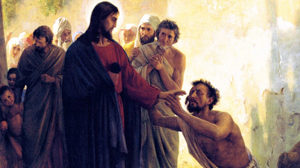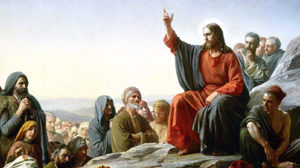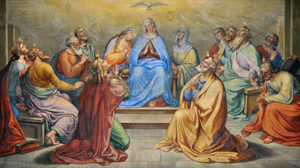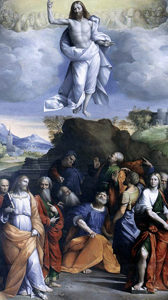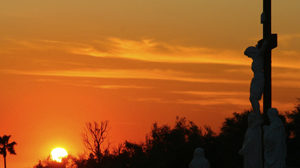Sirach 36:1, 4-5a, 10-17
Mark 10:32-45
Reflection:
Behold, we are going up to Jerusalem and the Son of Man will be handed over.
Today’s Gospel concludes one of the “framing” or “sandwich” technique examples in Mark’s Gospel. The evangelist skillfully applies this method to induce the reader to pay attention; but our temptation is to get lost in the bread and not get to the meat! You see, back in the eighth chapter of Mark’s narrative we read about Jesus healing a blind man at the pool of Bethsaida; remember, when Jesus asked if he could see, the man replied he could, but people were like trees walking, and Jesus had to come back and heal again! After that, at three different times, Jesus predicts his own Passion. Today’s Gospel is the third and final scenario. In tomorrow’s Gospel, from the latter part of Mark 10, Jesus will heal another blind person, Bartimaeus, the man who kept shouting, “Son of David, have pity on me! What Mark is trying to do by framing the three Passion narratives with the stories of the healing of two blind men is to remind us that the disciples were blind, unable to see Jesus’ destiny and their own.
How many times am I reluctant to hear or see what God is trying to communicate to me? To grow in holiness is not so much about concluding a significant prayer time, or taking my moral temperature on self-perfection, or giving myself a report card on good behavior. It is much a more about a growing sensitivity to God’s presence in my life. It is sort of like fine-tuning an old-time radio, trying to get on God’s wavelength. Commenting on Moses’ call in Exodus 3, when God spoke from a burning bush, the poet Elizabeth Barret Browning, penned these words,
“Earth’s crammed with heaven,
And every common bush afire with God,
But only he who sees takes off his shoes;
The rest sit round and pluck blackberries.” (Aurora Leigh)
How patient the Lord was with his Twelve in their “blindness” and inability to see! How patient with me when I just don’t pay attention.
Fr. Jack Conley, C.P. is the director of the Office of Mission Effectiveness. He is a member of the Passionist formation community at Catholic Theological Union in Chicago.

